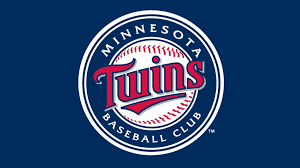There's excitement in the air as the Pohlads
announce plans to sell the Minnesota Twins baseball team after purchasing the
team for $44 million in 1984. Estimates
are that the team is now worth
$1.5 billion, and the sale will net the Pohlads a lot of money.
The state of Minnesota, Hennepin
County, and Minneapolis taxpayers who subsidized the team should tax the
profits to get back their investment in the Twins.
Professional sports are big business
and very profitable. Profitability is largely due to the public subsidies it
receives. Professional sports play on fan loyalties and threats to move as ways
to extract corporate welfare from taxpayers. Many justify the subsidies by
contending that sports stadiums provide. major economic stimuli for communities. Yet no major, credible study supports this. Viewed
from an opportunity cost perspective, public investments in sports yield
lower returns for the community than investments in museums, schools, or other
public amenities. Yes, sports may contribute to the quality of life in an area,
but they are not good economic investments for taxpayers.
Among the tactics sports owners use
to increase their
profitability is getting taxpayers to pay for the stadiums. Studies
indicate that public investment in a new sports facility is one of the prime
ways that teams and their owners increase profitability. The Pohlads have benefited twice from the
taxpayers in Minnesota.
First prior to Pohlads purchase of the Twins
in 1984, taxpayers provided subsidies to build the Metrodome. There was $155
million in bonds for the facility and $30 million in bonds for surrounding
infrastructure.
Years later in 2006, the Pohlads
successfully convinced the state of Minnesota, Hennepin County, and in
Minneapolis to subsidize Target Field. This came after they threatened in 1999
to leave
the state of Minnesota if Saint Paul taxpayers did not build them a stadium. While St Paul voters rejected the tax and the
team did not leave, just seven years later Minneapolis, Hennepin County and the
State of Minnesota came up to bat and hit a home run for him. They provided $90 million in bonds for
infrastructure, $ 260 million in bonds for the facility, and Hennepin County
enacted a 0.15% sales tax.
Thus, twice taxpayers have subsidized
the Twins, a private business operating for private gain. As a result, the
Pohlads original $44 million investment now will produce an estimated 1.5
billion sale. Such a gain is way beyond the inflation rate. The $ 44 million in 1984 today would be worth $133
million. The $1.5 billion far exceeds
the rate of inflation and cannot be explained simply by increased valuation the
Pohlads have added to the Twins unless one also includes the public subsidies.
While no one begrudges Poland's
making money, they did so significantly at taxpayer support. What they have now is an
unrealized capital gain on their investment produced largely in part by
public investment in their private business.
Their sale will be a realized capital gain.
Taxpayers are entitled to a part of
that gain and the value of the team when it is sold. Exactly how much is not
clear. But nonetheless, the public made
the Twins so profitable and valuable, and they are entitled to its fair share
of the return on their investments.

